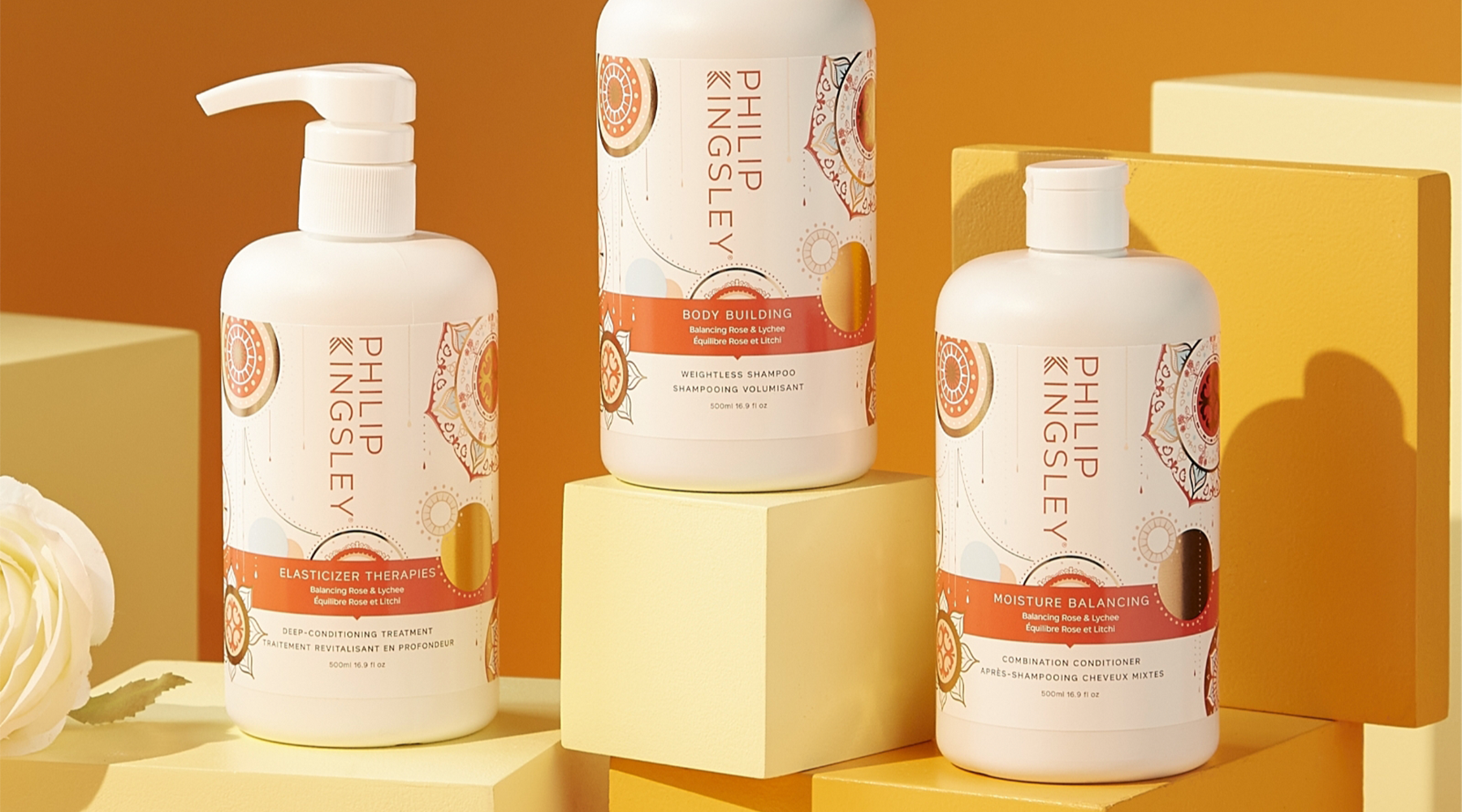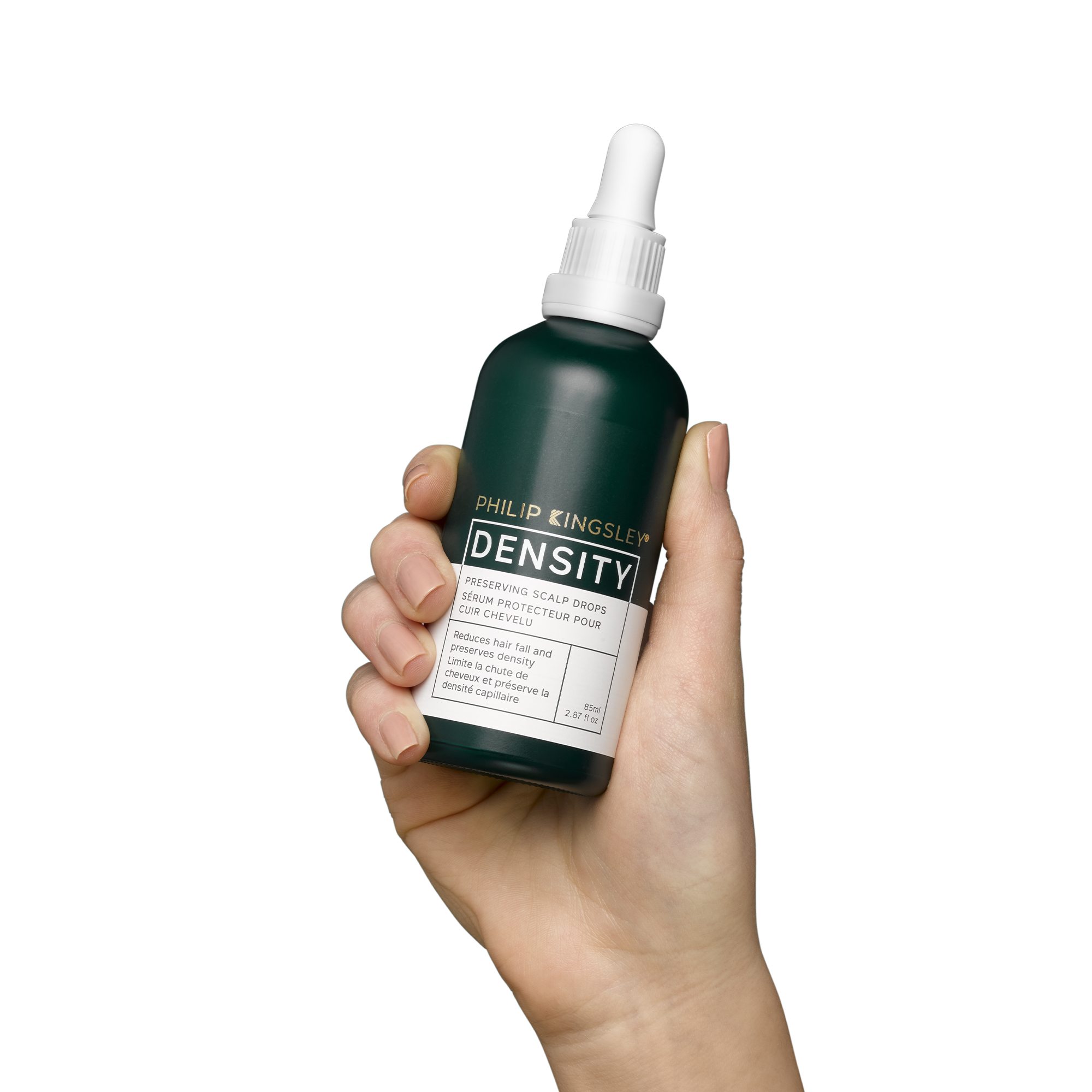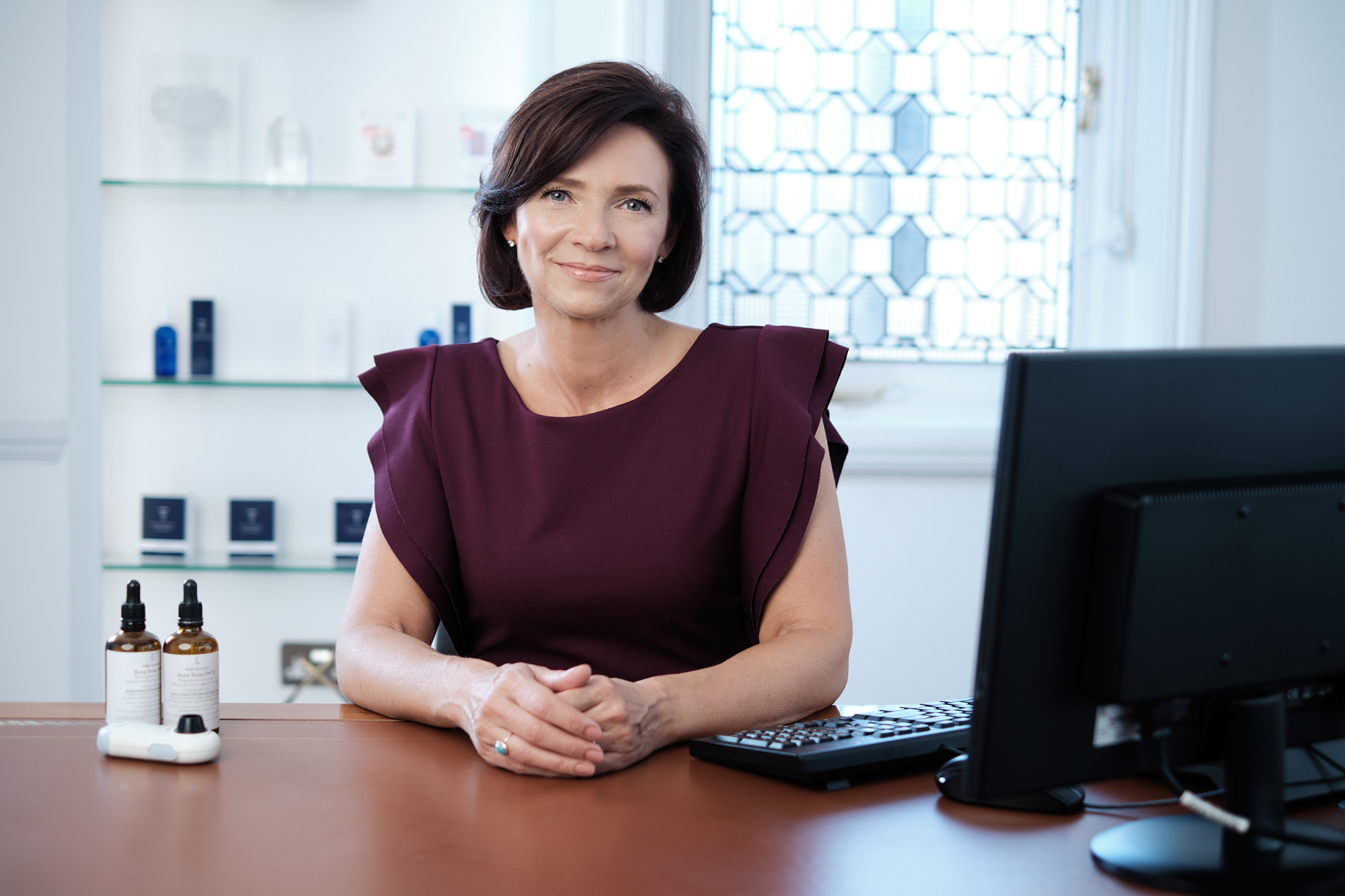Lisa Caddy is a consultant trichologist and Education Manager at Philip Kingsley haircare. We’ve asked her a few key questions on how hair can change during perimenopause and menopause, along with tips to look after our locks. Here’s what Lisa had to say…
Why do some women experience hair changes during perimenopause and menopause?
Hair changes during perimenopause and menopause are extremely common and mostly down to oestrogen levels. Oestrogen is a good hormone for hair, it protects hair follicles and maximises the growth phase of our hair cycle, and this enables us to achieve optimal hair length. As oestrogen diminishes, our follicles have less protection and they can miniaturise, and our hair cycle also speeds up.
What can this look like?
As hair follicles shrink, the hairs produced become finer over time, this can result in less coverage and the scalp becoming more visible in certain areas, most commonly the top area of the scalp. As the hair cycle speeds up, we begin to see an increase in daily hair fall (called hair shedding) and you may notice this when you wash or handle your hair.
Over time, this leads to an overall reduction in hair volume and the feeling we have less hair than we used to. Many women also notice hair texture changes and that their hair becomes dry and lifeless.
How can we support normal hair growth and ‘behaviour’?
It’s true that we have to put more effort into our hair as we age but small changes can make a big difference. Our ability to absorb nutrients gets harder and so a well-balanced diet is key to optimising our hair. Targeted hair supplements can really help to support a healthy diet and contribute to the maintenance of normal hair.

To improve your hair condition, use a weekly conditioning treatment such as Elasticizer to boost hydration, to help make it look and feel more bouncy, shiny and manageable. Try to reduce the amount of heat you use on your hair too and keep the temperature of your hairdryer as low as you can. It’s also worth limiting the use of hair straighteners.
Finally, volumising styling products can work wonders for giving the illusion of fuller, thicker hair, giving you more hair confidence!
Tell us about the Philip Kingsley ranges that could work for menopausal hair.
Our new Density range is a suite of active, targeted solution products, formulated to help slow hair loss. Preserving Scalp Drops and Stimulating Scalp Toner both work to stimulate the scalp, while supplements including Healthy Hair Complex and Amino Acid Protein Booster work in different ways on the hair to maintain optimal hair quality and support a healthy scalp.

Good scalp health is also really important for creating a healthy environment for your hair to grow. An itchy or flaky scalp can inhibit optimal hair growth, so it’s important to address scalp irritation swiftly. Our Flaky Itchy scalp range is award-winning and tackles scalp issues effectively to leave your scalp clean, flake free and calm.
Browse the full range of Philip Kingsley products here.
For more stories, advice and interviews, head to the Menopause Your Way Stories hub. To browse and shop a curated edit of menopause products, visit the Menopause Your Way page on QVC.
The content of the QVC website is for information only. It is not intended as a substitute for professional medical advice, diagnosis or treatment. Always seek the advice of your doctor or other qualified health provider with any questions you may have regarding a medical condition. Never disregard professional medical advice or delay in seeking it because of something you have read on the QVC website.
We understand there’s a lot of information out there on the menopause. You can read through the NICE guidance on menopause management, as well as the NHS overview on the menopause.




